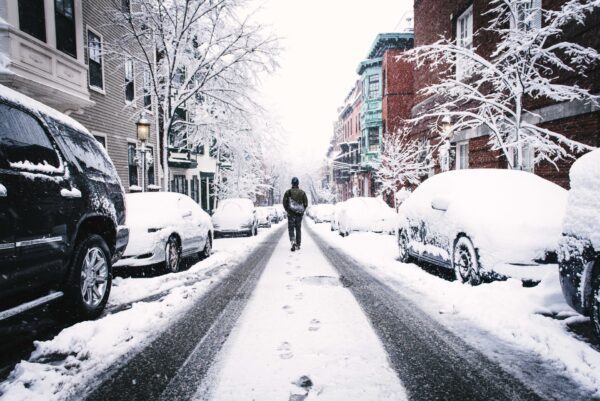
Slipping on ice can be more dangerous than you think. Falling on ice and snow can result in particularly severe injuries. Compared to other kinds of slip and fall accidents, when an unsuspecting person slips on a patch of ice or loses footing on snow-covered ice, they fall faster and hit the ground harder. It’s no wonder then, in Maine, as much as anywhere, the winter season is when the majority of slip and fall incidents happen.
Sidewalks, stairs, steps, and parking lots are notorious for winter weather-related slip and fall accidents. In many ways, slipping on ice is equivalent to being lifted off your feet and slammed into the ground. How hard you hit the ground in large part depends on such things as how fast you approach a patch of ice, if it’s visible or black ice, the stride in which you make contact, whether you are going up or down steps, and so forth. The degree of injury—how it affects your body—depends on how you fall.
Why Suing for Negligence is the Right Thing to Do
If you sustain an injury in such a slip and fall accident due to a property owner’s neglect, you have a legal right to file a personal injury claim to seek compensation for your injuries. It’s not just about being injured. There are medical bills to pay, the potential of lost wages, months of recovery, the emotional consequence of pain and suffering, and the degree to which the injury may change your life.
When Property Owners Don’t Maintain “Duty of Care”
By law, business owners and homeowners alike have a duty of care to maintain their properties at all times to prevent a “slip or trip and fall” accident. All property owners must exercise a duty of care to maintain the safety of their property. In the case of businesses, those areas are open to the public. In the winter, to prevent (or reduce) the risk of injury from a slip and fall, ice and snow must be removed within a reasonable amount of time. Failure to do so can legally amount to negligence.
What Injuries Can Happen From Falling on Ice or Snow?
The resulting injuries from falling on ice or snow can be painful and have serious consequences. You could fracture your arm or wrist while trying to break your fall or crack your tailbone if you land on your lower back, or receive a concussion if you hit your head on the icy surface. Common injuries related to slip and fall accidents on ice or snow include a fractured limb or limbs, bruises in vulnerable parts of your body such as the elbow and lower back, a dislocated patella or kneecap, spinal cord injuries, and not that uncommon, a traumatic brain injury.
What to Do After You Fall on Ice?
- If you feel any pain after falling on ice and snow, call for medical help as soon as possible.
- Upon receiving medical attention, it’s essential to document as much as you can about your accident, where the accident occurred, and what the area looked like when the accident happened.
- You or someone close to you should take pictures of the accident scene before weather conditions change or the property owner clears the ice or snow.
- While your memory is fresh, write down or dictate everything you can remember—every detail, no matter how insignificant—as soon as possible.
- It’s also important to write down the names and contact information of the people you were with or anyone who may have witnessed the accident.
- Keep all medical records, track of lost wages you may have incurred, and any events, activities, and relationships the injury prevented or hindered your participation.
- Finally, let the business owner know about the incident and dangerous condition on their property.
Can I Sue for a Slip and Fall Injury?
If your slip and fall on ice results in an injury, and that fall was caused by property owner negligence, you might be entitled to compensation. Contact Hardy Wolf & Downing, Maine’s premier personal injury law firm, for a free consultation. Hardy Wolf & Downing has successfully represented victims of property owner negligence for over 40 years and uses that experience to make sure clients receive the just compensation they are entitled to.

